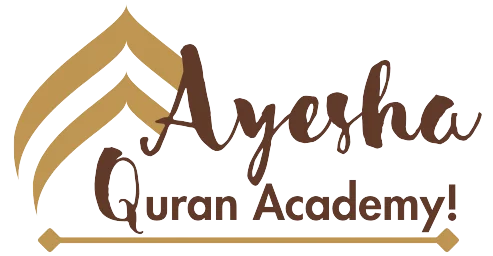The Quran is the most important scripture in Islam, so learning Arabic provides an incentive to read the Quran. One of the best ways to learn the Arabic language (if you’re not a native speaker) is to study the Quran and the language therein. Quran Arabic Course: This type of Arabic course focuses on learning the specific words, the grammar, and the structures used in the Quran so that the learners can understand the meanings by themselves.
We will discuss what Quranic Arabic is, what the benefits of learning Arabic with the help of the Quran are, how these courses are formed, and how you can learn it in the best way.
1. What is Quranic Arabic?
Quranic Arabic, or Classical Arabic, is the language of the revelation of the Quran. Although it is similar to the form we use in media and formal writing called Modern Standard Arabic (MSA) there are quite a lot of differences.
So here are the key characteristics of Quranic Arabic:
Advanced Vocabulary:
A lot of vocabulary found in the Qurans is not common in daily conversations, but they are full of meanings.
Eloquence and Rhetoric:
- The language of the Quran is poetic, rhythmic, and possesses rhetorical beauty, making it one of the best forms of Arabic.
The students learn and understand these linguistic features with the help of a complete and well-structured Quranic Arabic course ( like those offered by Ayesha Quran Academy ) and begin to apply this knowledge during their Quranic studies.
2. Learning Arabic Through the Quran: Why?
Students often prefer learning Arabic from the Quran instead of direct Arabic books.
Here’s why:
a. Quranic Understanding
Simply, students who learn Quran Arabic know the words of the Quran as they are written in the Quran, while Quran translations, especially those in English, are unable to perfectly find words that concisely express the original form of Arabic words in the Quran.
b. Personal and Spiritual Growth
Knowing the original language of the Quran facilitates a better realization of what is being written by God in the scripture and strengthens the faith in acts of worship, like Salah (prayer) and Dua (supplication).
c. Simplified Learning Method
Conversational Arabic requires mastering an extensive vocabulary, but Quranic Arabic has a more structured approach where words and grammar can be learned based on common usage.
d. Improves memorization and recitation
Understanding the meaning of Quranic words aids in Tajweed (proper pronunciation), reinforces memorization (Hifz) of the Quran and makes recitation impactful and precise.
3. Structuring a Quranic Arabic Course:
A Quranic Arabic course is usually categorized into different stages allowing learners of all levels from beginners to advanced level learners.
a. Beginner Level
Students are then concentrated on at this stage:
The Arabic alphabet and how to pronounce letters.
Knowing common Quranic words and their meanings.
Basic sentence structures in Quranic Arabic.
b. Intermediate Level
Once the basics are learned, students move on to:
Picking up the base of grammar, verbs, nouns and sentence formation.
Knowing what the short Surahs mean.
Using vocabulary knowledge to Quran.
c. Advanced Level
Advanced learners focus on:
الهُدَىٰ لِلْمُتَّقِينَ/, Relational Grammar Analysis[لم يشمل], Grammatical design patterns[لمشمل]
Learning Tafsir (meaning) based on knowledge of Quranic Arabic. Many institutions, such as Ayesha Quran Academy, further provide structured courses that take students through these levels in a systematic manner, ensuring that they get a complete learning experience
4. How to Learn Quranic Arabic:
There are different powerful techniques that can improve the learning process. Here are some of the best strategies:
a. Emphasise High-Frequency Words
The Quran has about 80000 root words, meaning that about 80% of the Quran uses only 300 root words. By learning these words with high frequency first, learners can quickly understand a large portion of the Quran’s meaning.
b. Listen and Repeat
Quranic recitation should be listened to, understood and repeated; it aids pronunciation and comprehension and solidifies memorization. This method is particularly effective for people who have difficulty pronouncing Arabic sounds.
The role of technology has greatly advanced the study of Quranic Arabic. Some useful tools include:
- Digital flashcards to help reinforce word-memory.
- Lessons in audio that can help you speak and emphasise better.
- Online quizzes to check your understanding and firm up your learning(s).
www.AyeshaQuran.com has incorporated these 21st-century learning tools into their online Quranic Arabic courses, thus transforming the learning experience by making the process playful and engaging.
Tips to Overcome Challenges in Learning Quranic Arabic:
Many new learners struggle with the grammar and vocabulary even when they are studying Arabic through other means. Still, with the correct mindset and continued effort, these obstacles can be mitigated.
a. Complex Grammar Rules
- The unique sentence structures and verb conjugations in Arabic, particularly in the Quran, can make grammar intimidating for learners.
Solution:
- Begin with the alphabet and simple nouns and verbs, then progress to compound rules.
You are more fortunate if you have access to simplified grammar books or online lessons that teach the vocabulary of Quranic Arabic.
Join a Quranic Arabic course like that of Ayesha Quran Academy.
b. Memorizing Vocabulary
- There are so many words in the Quran that we do not use in daily talk.
Solution:
- Try to learn the root words (most Arabic words originate from three-letter root words).
- Use flashcards or download mobile applications that teach vocabulary through repetition.
- Daily Read Quran– Mark Familiar Word with different Meanings.
c. Pronunciation and Tajweed
- As Quranic Arabic is a very specific pronunciation, it can sometimes be challenging for non-native speakers who are not used to hearing certain sounds or feeling certain inflections.
Solution:
- Here are some possible English translations: Listen to Quranic Recitations from Expert Qaris(Reciters), imitate their Pronunciation.
Tajweed On at Ayesha Quran Academy: You get one-on-one Tajweed lessons by a qualified teacher.
How Long Does It Take to Learn Quranic Arabic?
The length of time needed to learn Quranic Arabic is based on previous knowledge of Arabic, daily practice and resources used. Here’s a rough timeline:
Intermediate Level: 6–12 months (comprehension of short Quranic verses).
Intermediate Level: 2–3 years (examining selected Surahs with Tafsir).
With consistent practice and help from indentation courses, it isn’t long before students can grasp what is being said in the Quran.
Advantages of Learning the Quran in Arabic Online:
However, there are lots of benefits to enrolling in a Quranic Arabic course online:
a. Learn from Home
Students can study at their own pace, all in the comfort of their homes without travel and scheduling conflicts.
b. One-on-One Instruction
One such academy is Ayesha Quran Academy, which provides personalized classes with expert teachers to ensure a better understanding of the Quran.
c. Interactive Learning Tools
The online video, quizzes, audio lessons, etc. make most online courses to engage students in the learning process an effective way.
d. Flexibility in Scheduling
Students on a routine can pick the class times that suit their day through online courses.
Conclusion:
Completing a task in a stressful and unfamiliar environment. A structured Quranic Arabic course develops the skills required for an effective understanding of Quranic vocabulary, grammar and meanings.
So many people make the effort to learn Quranic Arabic because its benefits are manifold. Learning from a well-prescribed course can save you time and make you enjoy the process a lot more. By focusing on high-frequency words, recitation practices, and leveraging modern tools, students can make rapid progress and experience the Quran in its original eloquence.
A Quranic Arabic course: Whether you are a citizen or a devotee, the first step is always to engage with the Quranic text at some level, right?
By joining up for a structured curriculum like those offered by Ayesha Quran Academy, students can incrementally build their fluency in Quranic Arabic and discover the beauty of reading and grasping the Quran in its original form.


